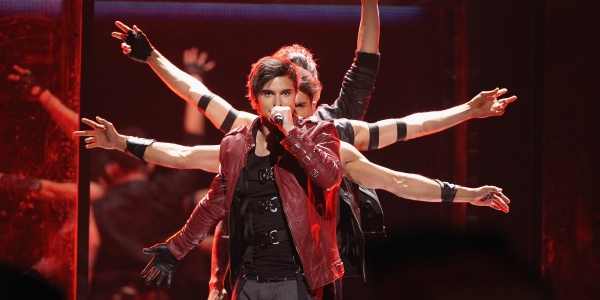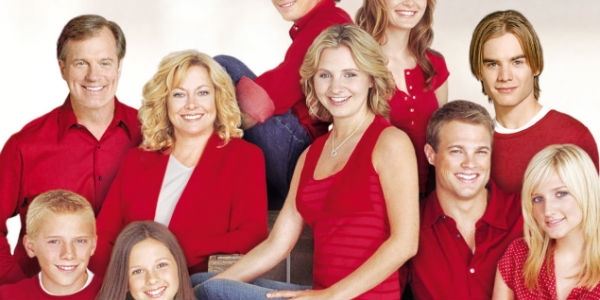Eurovision is one of the highest rating annual televised spectacles in the world, and perhaps the only one that Australia can’t ingratiate itself with in some way. Perhaps the reason Australians can embrace Eurovision so wholeheartedly is because we are ineligible to compete. Unlike the Olympics, we aren’t obliged to defend out national worth by proving we can swim faster than citizens of a tiny Commonwealth republic we’ve never heard of, and can enjoy the baffling spectacle without having our fragile pride damaged. It’s the moment as a nation where we feel like we aren’t sitting at the kid’s table anymore, but up the back of the room cracking wise with our closeted uncle.
The Eurovison song contest was started in 1956 by the European Broadcasting Union, based in Switzerland, who wanted to find a way to bring together the countries of war-torn Europe around a light entertainment programme. Europe was broken, millions of lives lost, old alliances destroyed and once immortal empires shattered in the wake of the Nazi scourge. The Swiss solution to healing the continent was to televise an unprecedented live singing contest. It worked, in a way. What started as a Utopian experiment in technology and art quickly became a cultural mullet; business up the front, party out the back.
As the contest snowballed in popularity, countries started to strategise. Taking a scattergun approach to mass market appeal, middle of the road bubblegum pop gave way to high camp and torch ballads. Eurovision reached its zenith after the Cold War as newly liberated smaller countries and former Soviet republics realised that singing in their native tongues meant alienating voters, inspiring everyone to start singing and writing in English. Poorly.
Remember when Safura, the Azerbaijan contestant last year sang You Smell Like Lipstick? And when the choreographer she shared with Beyonce talked earnestly about ‘supervising supersizing Safura’s superstardom?’ And lest we forget that Eurovision launched the careers of ABBA and Celine Dion? Good times, Europe. Good times.
Of course, like the Germans, Eurovision isn’t all smiles and sunshine. The competition quickly degenerated into petty international rivalries and cross cultural bitchiness. Countries tend to vote for their political allies for geographical blocs, or against countries that have invaded them recently. Looking at YOU, Sovereign Nation of Georgia.
In 1978, during the Israeli performance, the Jordanian broadcaster JRTV suspended the broadcast and showed pictures of flowers instead. Towards the end of the voting sequence when it became apparent that Israel was going to win, JRTV cut transmission altogether. Afterwards, the entire Jordanian news media refused to acknowledge the Israel win, telling everyone that Belgium had won. In 2005, Lebanon withdrew from the contest after they learnt they would be required to broadcast Israel’s song. As Israel doesn’t exist in Lebanese law, they chose to withdraw and cop a fine rather than take the propaganda hit that broadcasting an Israeli Idol’s power ballad.
This year had its controversies too. The Irish press are griping that the vote went to Azerbaijan because of a Eurasian voting cabal, robbing them of all the research money that went into creating those lesbian twins in a government laboratory. France took itself way too seriously, and Germany engaged the schadenfreude of the rest of Europe as they obnoxiously showed off their functioning economy, with slick production values and a song from defending champ Lena that was a little too, well, good.
The sultry Taken by A Stranger was a little too smoky and cool and audiences at home were left nonplussed by the uncharacteristic leap in production values. The Ukraine, once described as ‘the Miami of the USSR’ also broke character with an amazing ballad and accompanying sand art performance. Overwhelmingly, the super efficiency of the Dusseldorf hosts crept into the champions of the other Eurovision countries, and viewers worldwide were let down as nation after nation gave us inoffensive pop numbers.







